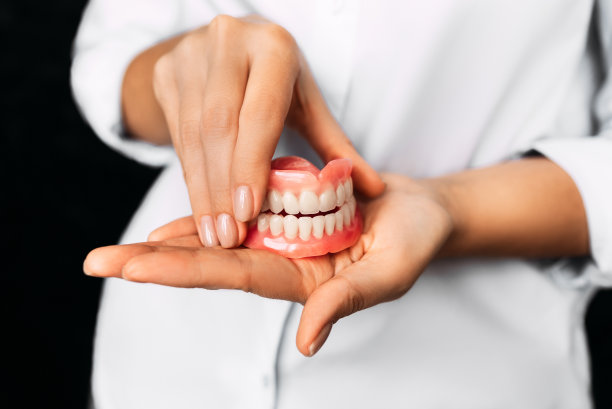Summary: Tooth extraction often comes with negative connotations, but understanding its importance for oral health and overall wellbeing can lead to a more informed perspective. This article highlights the critical need for tooth extraction through four main aspects: preventing and resolving dental issues, enhancing overall health, promoting proper dental aesthetics, and reducing financial burdens associated with dental treatments. By delving into these areas, we can appreciate how timely tooth extraction can contribute positively to both oral health and broader health objectives. Ultimately, making well-timed decisions regarding tooth extraction can significantly impact our quality of life.
1. Preventing and Resolving Dental Issues

Tooth extraction plays a vital role in preventing further dental complications. One of the most common reasons for extraction is the presence of tooth decay that has progressed beyond repair. When cavities become severe, the decay can impact surrounding teeth, leading to infections, abscesses, and even systemic health issues. By opting to remove the decayed tooth, individuals can halt the spread of decay and protect neighboring teeth from similar fates.
Another significant factor is periodontal disease. In advanced stages, gum disease can lead to tooth loosening and bone loss. In such scenarios, extracting the affected tooth can help control the disease and prevent it from affecting adjacent teeth. Addressing such issues promptly not only mitigates pain but also safeguards the integrity of ones dental and periodontal health.
Moreover, tooth extractions can alleviate overcrowded mouths. When there isn’t enough space, teeth can become misaligned, leading to further dental complications, such as bite problems. Removing one or more teeth can enable orthodontic treatment methods to be more effective, helping patients achieve a healthier and more functional bite.
2. Enhancing Overall Health
The overall health implications of unhealthy teeth cannot be overstated. Infections originating from bad teeth can lead to systemic infections, complicating chronic health issues like diabetes and heart disease. By removing teeth with extreme decay or infection, patients not only protect themselves from local complications but also reduce the risk of serious systemic conditions.
Furthermore, maintaining oral hygiene can become nearly impossible when dealing with multiple problematic teeth. An extraction can make it easier for individuals to care for their remaining teeth and gums, leading to improved oral hygiene and overall health outcomes. Fewer dental issues mean fewer chances of developing gum diseases, which are linked to various health problems, including cardiovascular diseases.
The psychological aspect also plays a significant role in overall wellbeing. Individuals burdened with painful or unattractive teeth may experience self-esteem issues. By removing problematic teeth and addressing these aesthetic concerns, patients may find a boost in their mental health and confidence, which can positively influence their daily interactions and overall quality of life.
3. Promoting Proper Dental Aesthetics
Dental aesthetics significantly affect how individuals perceive themselves and how they are perceived by others. Generally, an attractive smile can enhance one’s personal and professional interactions. When teeth are damaged, decayed, or misaligned, they can detract from one’s smile, leading to shyness or self-consciousness. By extracting problematic teeth, individuals unlock the potential for restorative treatments that can greatly enhance their smile.
Moreover, extracting unsightly teeth allows for better orthodontic options. Often, after the extraction of specific teeth, braces or other orthodontic devices can align the remaining teeth more effectively. The result is a straighter, healthier, and more appealing smile, which boosts confidence.
Also, in the case of wisdom teeth, their extraction often leads to a more aesthetically pleasing smile. Wisdom teeth can cause crowding and disrupt the alignment of other teeth. Extracting them can create ample space for remaining teeth, leading to better functionality and appearance.
4. Reducing Financial Burdens on Dental Treatments
Choosing to extract a tooth can sometimes be more cost-effective in the long term than pursuing extensive restorative dental treatments. While the initial cost of extraction may seem high, the costs associated with filling, root canals, crowns, or ongoing dental issues can quickly accumulate. Moreover, by removing a problematic tooth, patients can save on potential future treatments stemming from complications caused by that tooth.
Furthermore, many dental insurance plans cover extractions, especially if there’s an underlying issue prompting the removal. This coverage can alleviate financial pressure, ensuring patients receive necessary care without a crippling financial burden. Regular check-ups can identify potential extractions early on, allowing for a strategic approach to oral health.
Lastly, by prioritizing preventive measures like tooth extraction when needed, individuals can maintain healthier teeth and gums, which decreases the likelihood of needing expensive treatments down the road. Investing in extraction may appear counterintuitive initially, but the long-term savings on dental bills cannot be ignored.
Summary: The importance of tooth extraction for oral health and overall wellbeing extends beyond what many perceive as a negative procedure. Understanding the roles it plays in preventing and resolving dental issues, enhancing overall health, promoting dental aesthetics, and mitigating financial burdens showcases the necessity of this surgical intervention. Making informed choices about tooth extraction can significantly contribute to a person’s health and quality of life.
This article is compiled by Vickong Dental and the content is for reference only
Vickong Dental
Vickong Dental is a large medical group established in Hong Kong in 2008 by professors from well-known medical universities in Guangdong and Hong Kong, as well as medical doctors from key national '985' universities (including Master's supervisors and senior professors). The chain of branches brings together expert dentists with PhDs and Master's degrees from Hong Kong and Mainland China, committed to providing high-quality dental treatment.
"Vickong Dental Practices the University Motto of 'Healing and Serving Society,' with a Stable Operation for Sixteen Years. It Has Been honored with Hong Kong Enterprise Leaders's Choice,' and is a Global Trusted Implant Center for the Nobel Implant System. Recommended by Hong Kong Metro Broadcast and Guangdong Television, it Serves Customers from Over Thirty Countries and Regions, Gaining the Trust and Favor of Citizens from the Guangdong-Hong Kong-Macau Greater Bay Area and Surrounding Cities.

Thousands of customers' unanimous praise
The most recognized and highly recommended dental service by customers in the Guangdong-Hong Kong-Macau Greater Bay Area
We Ensure You Receive Detailed Care and Attention Here
Hong Kong standards, Shenzhen prices, Your Trusted English-speaking dentists

Vickong Dental Medical-Grade Instrument Disinfection Process
Vickong Dental Medical-Grade Instrument Disinfection Process

Vickong Dental Chain: A Warm and Comfortable Environment for Treatment






Appointment Hours

Q&A
Why choose Vickong Dental?
Vickong Dental practices the university motto 「Medicine to Benefit Society」, with each branch bringing together highly qualified dentists with doctoral and master’s degrees from Hong Kong and the Mainland, and has maintained seventeen years of steady operation。Recipient of 「2024 Hong Kong Enterprise Leaders Brand」, 「2025 Hong Kong Enterprise Leaders Brand」, a Nobel Biocare Global Trusted Implant Center, and a brand recommended by Metro Radio Hong Kong and Guangdong TV。
To date, we have served customers from more than thirty countries and regions,earning exceptionally high word-of-mouth recognition and trusted recommendations from residents across the Guangdong-Hong Kong-Macao Greater Bay Area and surrounding cities
We have eight major branches in Zhuhai、Shenzhen,and a consultation and service assurance center in Hong Kong,so you can book a free consultation at any time for any questions,which is very reassuring.
If I do not accept the quotation after the CT scan, will I be charged??
No! As long as the actual treatment has not started, you will not be charged any fees.
Will there be any additional charges during the treatment process?
No, there won’t be any additional charges. Before treatment begins, we will clearly explain the treatment plan and its corresponding fees. Only after the patient agrees and signs the consent form will we proceed with the dental service.
Can I pay in Hong Kong dollars?
Yes. Vickong Dental accepts payment in Hong Kong dollars. The amount will be converted based on the exchange rate of the day, and the applicable rate will be clearly communicated to you in advance.
Can I reschedule my appointment at any time?
Yes. Please contact us via **WeChat** or **WhatsApp** as early as possible, providing your original appointment time and details, along with your preferred new date and time slot for rescheduling.













